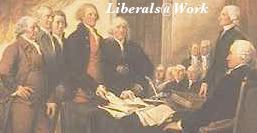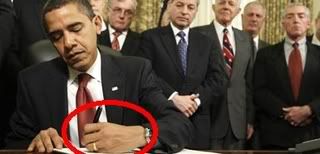So here’s what I’m wondering: will it, in fact, even be possible to pull the economy out of its nosedive before unemployment goes into double digits? I’m starting to wonder.Brad Delong alerts us that we're already there according to the WSJ bloggers.
Broader Unemployment Rate Hits 12.5%I'm thinking about making an investment to help out with our economic woes -- some new soup pots, ladles, spoons and bowls.The headline unemployment rate of 6.7% in November isn’t the only one the Labor Department reports. They also break the rate down by age, gender, ethnicity, and education [pdf ~Mark]. And in table A-12, on page 19 of the report, they also share their broadest estimate of the unemployment rate, which includes the total unemployed (the standard rate) plus "all marginally attached workers, plus total employed part time for economic reasons… plus all marginally attached workers."
That rate (called "U-6") in November? A whopping 12.5%.
The U-6 rate only has comparable history back to 1994, but November’s rate is by far the highest since then and the swift rise to that elevated level also far surpasses similar moves during the recessions in 2001 and 1990-91. Previously, the Labor Dept. kept a similar gauge with history back to 1970, showing a high of 14% unemployment during the deep recession in 1982.
The U-6 rate rose sharply in November, from 11.8% in October, and is markedly higher now than the 8.4% recorded in November 2007.
"It was already clear that this would be 'one of the worst recessions' in the post-war period," said Nigel Gault, chief U.S. economist at IHS Global Insight. "After today’s horrendous November employment report, it is beginning to look like the worst." –Kelly Evans
More from the WSJ hints at How bad can it get?
But in most prior downturns when job losses topped 300,000 in a single month, payrolls posted at least six additional months of declines before returning to consistently positive territory during the expansion. The 2001 recession, with its jobless recovery, proved to be the outlier: After the loss of 325,000 jobs in November 2001, payroll declines followed in 17 months into mid-2003.Well, that's good in a way. Eventually things will move up again . . . or not.
But the December payroll report is likely to be dismal as well. And with continuing claims for jobless benefits at a 26-year high, the unemployment rate — now at 6.7% — appears on track to hit 8% in the next year. Given companies’ expectations for the economy in 2009, comparisons to the post-2001 jobless recovery may be closer to reality. –Sudeep Reddy"Jobless recovery" is an oxymoron that should be permanently stricken from the lexicon, as useless a phrase as "highly depressed," "mandatory options" or "business ethics." Leave it to Shrub to find new and fascinating ways to go from shitty to suck . . . again.
Here we go againAnd yes, I do take this personally, and hold George W. Bush ultimately to blame. Recessions happen, sure. Disintegration of the entire economic system, a global catastrophe to capitalism itself takes a special kind of effort -- neglect as an art form.
Early in what became the Great Depression, John Maynard Keynes was asked if anything similar had ever happened. "Yes," he replied, "it was called the Dark Ages and it lasted 400 years."
 Exposing the lack of compassion by conservatives and
debunking right wing hypocrisy at every opportunity.
Exposing the lack of compassion by conservatives and
debunking right wing hypocrisy at every opportunity.





 Subscribe via Email
Subscribe via Email
0 Comments:
POST A COMMENT